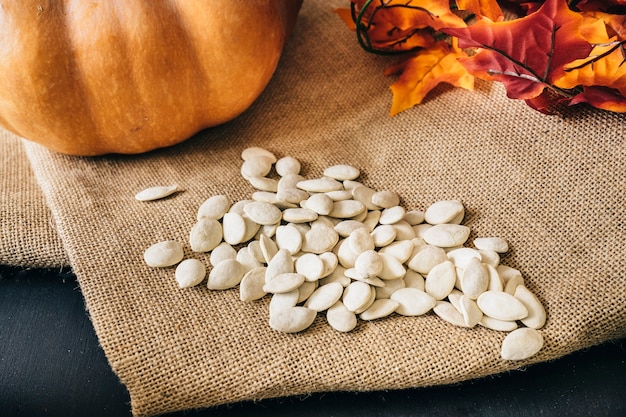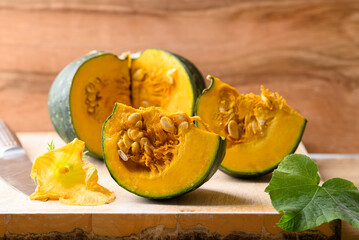
Pumpkin seeds, commonly known as pepitas, are a nutrient-dense superfood that can benefit your health in a variety of ways. These small seeds provide numerous benefits, ranging from improved heart health to improved sleep. However, like with any food, they must be consumed in moderation and with awareness of potential negative effects. In this complete guide, we’ll look at the best ways to eat pumpkin seeds, as well as their advantages and safety precautions.
Benefits of Pumpkin Seeds:
- Rich in Nutrients: Pumpkin seeds are a dense source of nutrients, including magnesium, zinc, and iron, contributing to overall well-being.
- Heart Health: The magnesium content in pumpkin seeds supports heart health by regulating blood pressure and reducing the risk of cardiovascular issues.
- Immune Boost: Loaded with antioxidants, pumpkin seeds help strengthen the immune system, protecting the body against infections and diseases.
- Better Sleep: The seeds contain tryptophan, an amino acid that aids in the production of serotonin and melatonin, promoting restful sleep.
- Weight Management: High in fiber and protein, pumpkin seeds contribute to a feeling of fullness, assisting in weight management.
How to Incorporate Pumpkin Seeds into Your Diet:
- Snacking: Enjoy them as a crunchy snack on their own or mix them with dried fruits for a satisfying trail mix.
- Salads and Yogurt: Sprinkle pumpkin seeds on salads or yogurt to add a nutty flavor and a nutritional boost.
- Smoothie Booster: Blend pumpkin seeds into your smoothies for an extra dose of protein and a delightful nutty texture.
- Baking: Incorporate pumpkin seeds into your baking recipes, such as muffins, granola bars, or bread, for added crunch and nutrition.
- Pumpkin Seed Butter: Similar to peanut butter, pumpkin seed butter is a tasty spread for toast, crackers, or as a dip for fruits and vegetables.

Side Effects and Precautions:
- Allergies: Some individuals may be allergic to pumpkin seeds. If you experience itching, swelling, or difficulty breathing, seek medical attention.
- Digestive Issues: Eating too many pumpkin seeds may cause digestive discomfort due to their high fiber content. Consume them in moderation.
- High Calorie Content: While nutrient-dense, pumpkin seeds are calorie-rich. Be mindful of your overall calorie intake, especially if you are watching your weight.
- Phytates: Pumpkin seeds contain phytates, which can bind to minerals and reduce their absorption. Soaking or roasting the seeds can help mitigate this effect.
In conclusion, incorporating pumpkin seeds into your diet can be a delicious and nutritious choice. By being aware of their benefits and potential side effects, you can make the most of these tiny treasures. From snacking to enhancing your favorite dishes, pumpkin seeds offer a versatile and healthful addition to your culinary repertoire. Remember, balance is key, so savor the goodness of pumpkin seeds in moderation for a well-rounded and nourishing diet.



